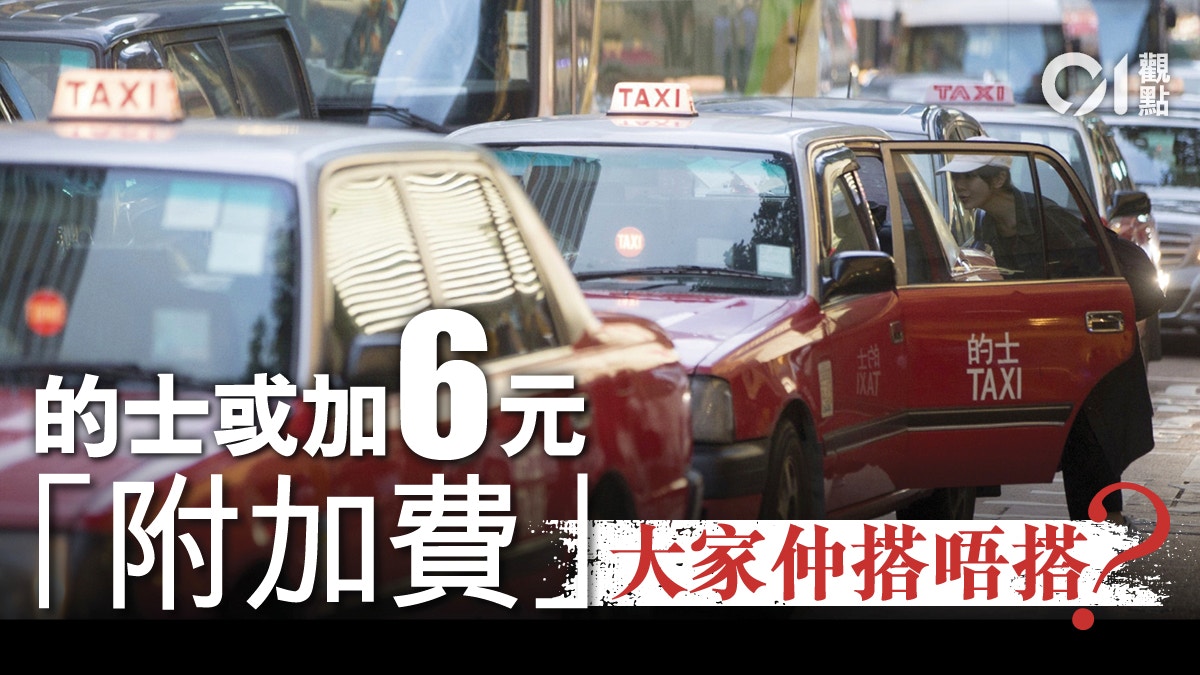01 view
Written by: Commentary Editing Room
2020-10-21 06:30
Last update date: 2020-10-21 06:30
The Hong Kong Taxi and Minibus Merchants Association and the Taxi Dealers and Owners Association jointly signed a letter to the Transport Department on Monday (19th) to formally apply for an additional RMB 6 insurance surcharge for passengers per trip.
The taxi group mentioned in the joint letter that since June, meetings with the Transport and Housing Bureau, the Transport Department, and the Insurance Regulatory Bureau to discuss taxi insurance matters have been fruitless, and the industry’s application for fare increase more than two years ago has been implemented indefinitely, and the premium has increased. The rate exceeded inflation by more than twice. The taxi group described the application for fare increase and transfer to the public as "it is a must."
Under the influence of the epidemic, many taxis lined up to pick up passengers at the taxi stand outside the International Finance Center.
(Photo by Huang Weilun)
Car age, age trapped by nearly double the premium increase
Taxi operating costs include car prices, car rentals, insurance premiums, license fees, registration fees, and maintenance and repair costs.
As the age of taxis grows and drivers in the industry tend to age, the maintenance and repair costs of the taxi industry may increase accordingly.
While the probability of accidents has increased year-on-year, insurance companies have increased premiums based on the above reasons.
The joint effect of the two causes the taxi industry's operating costs to rise first, and secondly, the increase in insurance premiums can exceed inflation. The taxi industry can be said to have suffered from both sides.
In May this year, a group of taxi drivers reported to Members that the cost of taxi insurance has doubled this year, making it difficult for car owners to bear.
One of them, a 70-year-old car owner who holds two taxis, said that because his taxi was 17 years old or more, the insurance company refused to cover the car on the grounds that the car was too old, and some companies claimed that he was over 68 years old. The insurance surcharge will be increased by about 20% to 100% due to age.
Last year, a taxi was hit by another vehicle in an accident. Although the driver had already claimed compensation from the other side, the insurance company still cancelled about 30% of the premium discount, and the insurance premium rose from 28,000 yuan to 57,000 yuan.
Once the taxi cannot be renewed, or the premium is higher than the car owner can afford, these taxis may not be able to drive onto the streets and cannot carry passengers.
Although there is room for price increases or a vicious circle
The car owner passes the cost on to the driver, and the driver passes on the fare increase to the passengers. The ultimate victims are undoubtedly the public who need to take taxis.
However, since the government stopped issuing taxi licenses, the price of taxi licenses has risen, and the nature of the license has become a personal investment. It would be unreasonable to ask the government to pay public money for additional subsidies for insurance companies and the taxi industry.
The government department should be responsible for the mediation between the taxi industry and the insurance company, but if the three parties fail to reach an agreement, the society may also be psychologically prepared for taxi fare increases.
More fundamentally, the authorities should review their policies and consider opening applications for taxi licenses to increase healthy competition.
With reference to Carspring’s Taxi Price Index in 2017, taxi prices in major cities such as Tokyo and Seoul adjacent to Hong Kong actually account for a relatively low percentage of citizens’ monthly income.
If you compare Tokyo and Seoul, Hong Kong taxi fares do have room for fare increase.
However, the quality of taxi services in Hong Kong has long been criticized by the public, and the government must also address this problem squarely when giving taxi fares room.
Otherwise, no matter how much the authorities allow the industry to increase fares, the public will eventually choose other modes of transportation, or even use other types of rides. In the long run, the taxi industry will still be unable to reverse its fate.
Franchised taxis "end of life" license issue unresolved
600 franchised taxis can change the ecology
Quality taxis are better than no reforms and must be both quantity and quality
01 view
Taxi Transport Department Transport and Housing Bureau 01 View

